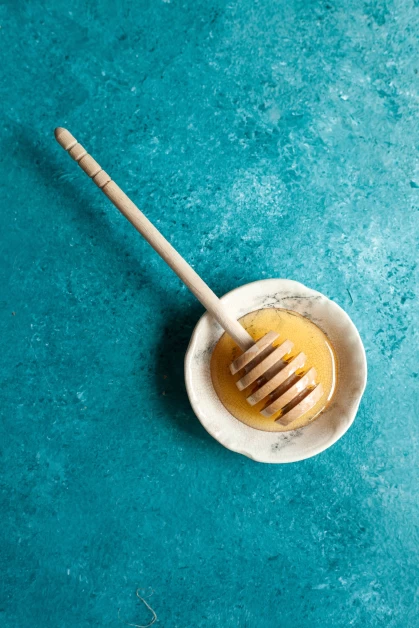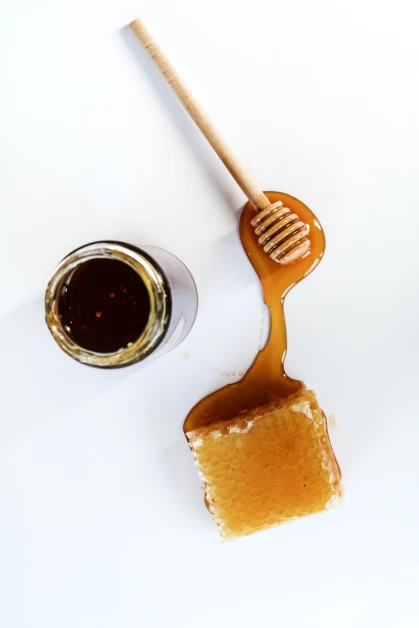Table of Contents
Introduction
In this article, we will explore the benefits and usage of Manuka honey for individuals with Irritable Bowel Syndrome (IBS). Manuka honey is a unique type of honey that is known for its potential health benefits, including its antibacterial and anti-inflammatory properties. We will discuss how Manuka honey can be incorporated into a low FODMAP diet, which is often recommended for individuals with IBS.
Understanding Irritable Bowel Syndrome (IBS)
Irritable Bowel Syndrome, or IBS, is a common gastrointestinal condition that affects the large intestine. It is characterized by symptoms such as abdominal pain, bloating, gas, diarrhea, and constipation. While the exact cause of IBS is unknown, it is believed to be related to a combination of factors, including abnormal muscle contractions in the intestines, increased sensitivity to pain, and disturbances in the gut microbiome.
The Role of Diet in Managing IBS
Diet plays a crucial role in managing the symptoms of IBS. One dietary approach that has gained attention is the low FODMAP diet. FODMAPs are a group of carbohydrates that are not easily absorbed in the gut and can cause digestive issues in some individuals. The acronym FODMAP stands for fermentable oligosaccharides, disaccharides, monosaccharides, and polyols.
What is Manuka Honey?
Manuka honey is a unique type of honey that is produced in New Zealand and Australia. It is made by honeybees that collect nectar from the flowers of the Manuka bush, also known as Leptospermum scoparium. Manuka honey is known for its distinctive flavor and dark color. It is also renowned for its potential health benefits, which are attributed to its high levels of bioactive compounds, such as methylglyoxal (MGO) and hydrogen peroxide. These compounds give Manuka honey its antibacterial, anti-inflammatory, and antioxidant properties.
Manuka Honey for IBS: The Potential Benefits
Manuka honey has been studied for its potential benefits in managing the symptoms of IBS. While research on this topic is limited, some studies have shown promising results. Here are some potential benefits of using Manuka honey for IBS:
-
Antibacterial Properties: Manuka honey has been found to have strong antibacterial properties, which may help reduce the overgrowth of harmful bacteria in the gut. This can be particularly beneficial for individuals with IBS, as imbalances in the gut microbiome are believed to play a role in the development of the condition.
-
Anti-inflammatory Effects: Inflammation in the gut is a common feature of IBS. Manuka honey has been found to have anti-inflammatory effects, which may help reduce inflammation in the gut and alleviate the symptoms of IBS.
-
Soothing and Healing Properties: Manuka honey has long been used for its soothing and healing properties. It can help soothe the lining of the digestive tract and promote the healing of damaged tissues, which can be beneficial for individuals with IBS.
Incorporating Manuka Honey into a Low FODMAP Diet
While Manuka honey is known for its potential health benefits, it is important to note that it is classified as a high FODMAP food. FODMAPs, as mentioned earlier, are a group of carbohydrates that may trigger digestive symptoms in some individuals. However, this does not mean that Manuka honey needs to be completely eliminated from a low FODMAP diet.
Guidelines for Consuming Manuka Honey on a Low FODMAP Diet
When incorporating Manuka honey into a low FODMAP diet, it is important to consume it in small quantities. The Monash University Low FODMAP app recommends limiting the intake of honey to 1 teaspoon or less per serving. This small amount of Manuka honey is less likely to trigger symptoms in individuals with IBS.
Manuka Honey Alternatives
If you find that Manuka honey is not well-tolerated or you prefer to avoid high FODMAP foods altogether, there are alternatives available. Here are some low FODMAP sweeteners that can be used as substitutes for Manuka honey:
-
Pure Maple Syrup: Pure maple syrup is made from the sap of maple trees and is considered a low FODMAP sweetener. It can be used as a substitute for Manuka honey in recipes and beverages.
-
Rice Malt Syrup: Rice malt syrup is made from fermented cooked rice and is a low FODMAP alternative to honey. It can be used in baking and cooking as a sweetener.
-
Brown Sugar: Brown sugar is made from sucrose and contains equal amounts of fructose and glucose, making it a low FODMAP sweetener. It can be used in various recipes as a substitute for Manuka honey.
How to Use Manuka Honey for IBS
When using Manuka honey for IBS, it is important to start with small amounts and monitor your tolerance. Here are some tips on how to use Manuka honey for IBS:
-
Add a teaspoon of Manuka honey to warm water or herbal tea: This can help soothe the digestive tract and provide relief from symptoms such as abdominal pain and bloating.
-
Use Manuka honey as a topping: Instead of drizzling Manuka honey over high FODMAP foods such as fruits, opt for using it as a topping on low FODMAP foods like oatmeal or lactose-free yogurt.
-
Combine Manuka honey with low FODMAP ingredients: Incorporate Manuka honey into recipes that include low FODMAP ingredients, such as gluten-free pancakes or low FODMAP granola bars. This can add a touch of sweetness without triggering symptoms.
Conclusion
In conclusion, Manuka honey has the potential to offer various benefits for individuals with IBS. Despite being classified as a high FODMAP food, it can still be incorporated into a low FODMAP diet if consumed in small quantities. However, if you find that Manuka honey is not well-tolerated or you prefer to avoid high FODMAP foods altogether, there are low FODMAP alternatives available. Remember to consult with a healthcare professional or registered dietitian specializing in IBS to determine the best approach for incorporating Manuka honey into your diet. With careful consideration and moderation, you can enjoy the potential benefits of Manuka honey while managing your IBS symptoms effectively.
Please note that this article is for informational purposes only and should not replace medical advice. If you have specific dietary concerns or medical conditions, consult with a healthcare professional before making any changes to your diet.



